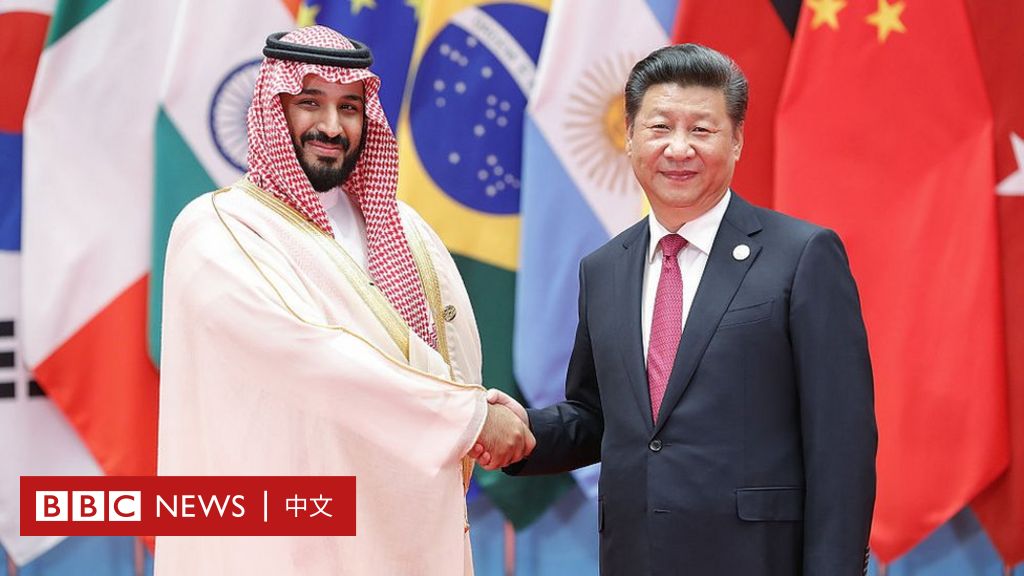image source,Getty Images
Saudi Arabia’s Madain Saleh Tomb “Qasr al-Farid” inscribed on the UNESCO World Heritage List
Saudi state media and the Chinese Foreign Ministry separately confirmed that Chinese President Xi Jinping will visit Saudi Arabia on Wednesday (December 7) for a three-day state visit. Xi Jinping last visited Saudi Arabia in February 2016.
Xi is expected to hold bilateral talks with Saudi King Salman, which will also be attended by Crown Prince Mohammed bin Salman. The amount covered by the agreement between the two parties is expected to reach 30 billion US dollars.
In addition, Xi Jinping will also attend the first China-Arab states summit and the China-Gulf Cooperation Council summit to be held in Riyadh, the capital of Saudi Arabia. Reuters quoted people familiar with the matter as saying China is expected to sign dozens of agreements and memorandums of understanding with Gulf and Arab countries related to energy, security and investment.
China is the largest buyer of Saudi oil. At the same time, the relationship between Saudi Arabia and its traditional ally, the United States, is at a low ebb, the latter sharply criticizing Saudi Crown Prince Mohammed for his involvement in the “assassination of the journalist in exile Khashoggi”; tide. However, China and Saudi Arabia have limited cooperation on security and other issues, mainly economic and trade.
China: Intensive Diplomacy and “Divide and Conquer”
The economic and trade relations between China and Saudi Arabia can be summarized as “a huge volume and a single structure”: the volume of trade between the two countries has increased from 400 million US dollars when diplomatic relations were established in 1990 to over 87 billion US dollars in 2021, accounting for 27% of Saudi oil exports, 25% of Saudi Arabia’s Chinese exports and chemicals go to China, but 95% of Chinese imports from Saudi Arabia are concentrated in petroleum and chemicals.
For China, one of the potential gains of this trip is further expansion of the economic and trade arena.
For example, in the field of infrastructure, Saudi Arabia has proposed the “Vision 2030”, which aims to reduce the economy’s dependence on oil, including the automotive industry, the military industry, the communications industry and the future city construction (NEOM), involving US$500 billion in planning. China’s advantages in new energy vehicles, 5G and infrastructure could become part of the expansion of cooperation between the two sides.
For another example, the use of the RMB for settlement in some petroleum transactions will greatly promote the internationalization of the RMB. In March of this year, The Wall Street Journal quoted people familiar with the matter as saying that Saudi Arabia was considering using RMB instead of US dollars for some of its oil sales to China. However, whenever the relationship between the United States and Saudi Arabia was cold before, similar reports were released, but no further action was taken.
“Petrodollar” is related to US strategic interests. At the same time, Saudi Arabia is the largest buyer of American weapons. It has a deep relationship with the United States in terms of strategy and security. It may be extremely difficult to promote settlement in RMB. Conversely, although many oil transactions between Iran, Russia and China are settled in RMB, both countries are subject to US sanctions.
On security issues, China and Saudi Arabia have also entered into limited cooperation: for example, the Chinese-led Shanghai Cooperation Organization lists Saudi Arabia as a “dialogue partner”.
image source,Getty Images
Xi Jinping with Saudi Crown Prince Mohammed bin Salman at the G20 summit in Hangzhou.
In the past three years since the epidemic, China has carried out intense diplomatic activities, and Xi Jinping has met with the leaders of more than 30 countries in the past month. The Economist Intelligence Unit (EIU) analyzed in an email sent to BBC China that Xi Jinping’s recent intensive diplomatic contacts are aimed at creating a more favorable international environment for him. China’s “divide and rule” strategy has frustrated the Western powers and others. allies, but the agency doesn’t think it’s feasible.
The United States has solid foundations and big interests in the Middle East, but some problems have recently emerged. China has little trade in the Middle East, but has plenty of room, taking advantage of the US contraction to seek more diplomatic breakthroughs. China could break through the scope of existing energy transactions and achieve cooperation in a broader range of economic and trade areas. If progress is made in the internationalization of the renminbi and cooperation on security, it will inject new variables into the tripartite relationship between the China, the United States and Middle East countries.
Saudi Arabia: balancing and coverage
When Xi Jinping visited Saudi Arabia, one of the focal points of public opinion was the luxury of the welcoming ceremony. When Trump visited Saudi Arabia in 2017, he received a grand welcome and King Salman personally greeted him at the airport. In contrast, enthusiasm for Biden’s visit to Saudi Arabia in July this year has been described by the media as “dumbed down”.
One of the important reasons for this change is the assassination of exiled Saudi journalist Jamal Khashoggi in 2018. After entering the Saudi consulate in Istanbul, Turkey, Khashoggi was killed and dismembered by a Saudi assassination team. where his remains are located is still unknown.
US intelligence believes Saudi Crown Prince Mohammed bin Salman likely approved of the killing at the time. During the campaign, Biden called Saudi Arabia facing a pariah state and stressed that there would be consequences.
However, after the outbreak of the Russia-Ukraine war in February this year, oil prices have soared. To deal with the price hike, Biden visited Saudi Arabia and hoped that the Organization of Exporting Countries oil company (OPEC), which he led, could increase production and lower oil prices. But in October, OPEC subsequently announced a production cut. In November, the US government said in a court filing that Saudi Crown Prince Mohammad Khashoggi enjoyed “immunity” from a civil suit.
image source,Getty Images
Khashoggi was killed at the Saudi consulate in Istanbul, Turkey.
Ayham Kamel, head of the Middle East and North Africa region of Eurasia Group (Eurasia Group), believes that expanding relations with China is obviously risky and counterproductive, leading to further deterioration of relations between Saudi Arabia and the United States, but Corona Prince Mohammed is certainly not motivated by resentment and good relations with China.
Kamel said that after calculating strategic gains and losses, the Saudi side believes Beijing should be accepted because China has become an indispensable economic partner.
Jon Alterman, director of the Middle East program at the Center for Strategic and International Studies (CSIS), said that although Saudi Arabia’s relationship with China appears to be developing “much faster” than its relationship with the United States, actual relationships cannot be compared. “It’s a far cry from complexity or intimacy.”


